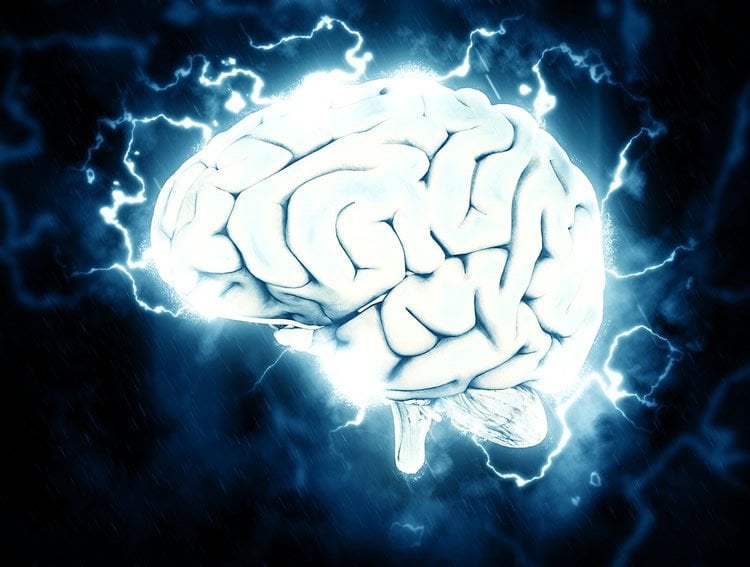Summary: A new study provides additional evidence that the tenancy for people to be drawn toward religious belief is neurologically based.
Source: University of Missouri Columbia.
A relationship between epilepsy and heightened religious experiences has been recognized since at least the 19th century. In a recent study, researchers from the University of Missouri found a neurological relationship exists between religiosity– a disposition for spiritual experience and religious activity–and epilepsy. This finding sheds light on the connection between religion and neuropsychological processes within the human brain.
“Past research has indicated that humans might have a distinctive neurological tendency toward being spiritually oriented,” said Brick Johnstone, a neuropsychologist and professor of health psychology. “This research supports the notion that the human propensity for religious or spiritual experiences may be neurologically based.”
“The end goal of this research is to understand if some type of connection exists between the brain and spiritual experience,” said Daniel Cohen, co-author and assistant professor of religious studies. “If a connection exists, what does it mean for humans and their relationship with religion?”
In their study, the researchers asked individuals with epilepsy to take two surveys. The first survey assessed behavior characteristics specifically associated with epilepsy. The second survey measured religious activities and spiritual orientations. The average participant was 39 years old, with the majority of participants of Caucasian descent; 32 percent identified as Protestant, 10 percent as Catholic, 5 percent as Buddhist, 5 percent as atheist, 38 percent as other, and 10 percent did not indicate any religious affiliation.

“We found a strong correlation between philosophical religious thoughts and epilepsy, but no correlation between emotional thinking and epilepsy,” said Greyson Holliday, co-author and MU undergraduate student studying psychology. “This study suggests that people may have natural neurological predispositions to think about religion but not in a way that is necessarily associated with emotion.”
Based on the findings, future research from Johnstone, Holliday and Cohen will examine religious experiences before and after brain surgery to help determine the specific nature of religiously oriented neuropsychological processes.
“Heightened religiosity and epilepsy: evidence for religious-specific neuropsychological processes,” recently was published in the journal Mental Health, Religion and Culture. Future research from Johnstone, Holliday and Cohen will examine religious experiences before and after brain surgery. Johnstone is a professor of health psychology in the MU School of Health Professions. The psychology and religious studies departments are in the MU College of Arts and Sciences.
Source: Sheena Rice – University of Missouri Columbia
Image Source: NeuroscienceNews.com image is in the public domain.
Original Research: Abstract for “Heightened religiosity and epilepsy: evidence for religious-specific neuropsychological processes” by Brick Johnstone, Greyson Holliday & Daniel Cohen in Mental Health, Religion & Culture. Published online December 22 2016 doi:10.1080/13674676.2016.1238449
[cbtabs][cbtab title=”MLA”]University of Missouri Columbia “Neurological Link Between Epilepsy and Religious Experiences.” NeuroscienceNews. NeuroscienceNews, 4 March 2017.
<https://neurosciencenews.com/neurotheology, epilepsy-religion-6214/>.[/cbtab][cbtab title=”APA”]University of Missouri Columbia (2017, March 4). Neurological Link Between Epilepsy and Religious Experiences. NeuroscienceNew. Retrieved March 4, 2017 from https://neurosciencenews.com/neurotheology, epilepsy-religion-6214/[/cbtab][cbtab title=”Chicago”]University of Missouri Columbia “Neurological Link Between Epilepsy and Religious Experiences.” https://neurosciencenews.com/neurotheology, epilepsy-religion-6214/ (accessed March 4, 2017).[/cbtab][/cbtabs]
Abstract
Heightened religiosity and epilepsy: evidence for religious-specific neuropsychological processes
It has been hypothesised that humans may have an innate neurologic tendency towards being religiously oriented, suggesting that we possess religious-specific neuropsychological processes. Persons with epilepsy provide a unique opportunity to study these relationships given the documented hyper-religious experiences observed with epilepsy. The current study evaluated 19 individuals with epilepsy to determine if epilepsy-related religious experiences (as measured by the Bear Fedio Inventory [BFI]) are reflective of a general increase in behaviours observed with epilepsy (e.g., philosophical thoughts, emotionality), or if they are reflective of a religious-specific orientation. Spearman correlations indicated that: (1) BFI religious-orientation scales are significantly related to philosophical concerns (i.e., nature of the universe), but not measures of emotionality and (2) BFI religious-orientation scales, but not philosophical or emotionality scales, are significantly associated with other commonly used measures of spirituality. These findings suggest that individuals may possess neuropsychological processes that are specific to religious orientations.
“Heightened religiosity and epilepsy: evidence for religious-specific neuropsychological processes” by Brick Johnstone, Greyson Holliday & Daniel Cohen in Mental Health, Religion & Culture. Published online December 22 2016 doi:10.1080/13674676.2016.1238449






